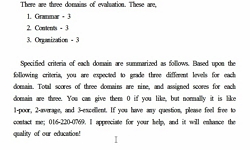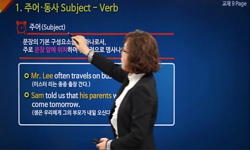The present study investigates the effects of feedback on English as a foreign language (EFL) learners’ writing via two different modes of computer-related communication: peer-editing with a word processor and free discussion on an asynchronous web-...
http://chineseinput.net/에서 pinyin(병음)방식으로 중국어를 변환할 수 있습니다.
변환된 중국어를 복사하여 사용하시면 됩니다.
- 中文 을 입력하시려면 zhongwen을 입력하시고 space를누르시면됩니다.
- 北京 을 입력하시려면 beijing을 입력하시고 space를 누르시면 됩니다.
https://www.riss.kr/link?id=A106935486
- 저자
- 발행기관
- 학술지명
- 권호사항
-
발행연도
2005
-
작성언어
English
- 주제어
-
등재정보
KCI등재
-
자료형태
학술저널
-
수록면
27-43(17쪽)
- 제공처
-
0
상세조회 -
0
다운로드
부가정보
다국어 초록 (Multilingual Abstract)
The present study investigates the effects of feedback on English as a foreign language (EFL) learners’ writing via two different modes of computer-related communication: peer-editing with a word processor and free discussion on an asynchronous web-based Bulletin Board (BB). The performance of two groups of EFL learners on the writing task was compared to answer to the following questions: 1) Is there any difference between peer editing by a word processor and free discussion on an asynchronous BB in participants’ writing accuracy and writing fluency development? 2) How might asynchronous BB facilitate free discussion on the topic? The results showed that, in general, participants in both groups produced significantly longer essays with fewer errors when given feedback on their drafts. However, a measure of the error-free T-unit indicated that the only statistically significant change between the first and the revised draft was found in the free discussion group by BB. These results may suggest that first, L2 writers who have been exposed to fairly intensive L2 writing experiences may more effectively improve their writing proficiency through indirect ways, such as free discussion, elaboration, and listening to others’ perspective. Secondly, web-based Bulletin Board discussion may facilitate L2 learners’ contextualized interactions, which can lead to reorganization, expansion and selfcorrection of their own writing.
목차 (Table of Contents)
- I. Motivation and Purpose of the Study
- II. Literature Review
- III. Method
- 1. Participants
- 2. Writing Task
- I. Motivation and Purpose of the Study
- II. Literature Review
- III. Method
- 1. Participants
- 2. Writing Task
- 3. Analysis and results
- 4. Interpretation of results
- IV. Discussion
- V. Limitation and Further Suggestion of the Study
- VI. Teaching Implications and Conclusion
- Works Cited
- ABSTRACT
- Appendix
동일학술지(권/호) 다른 논문
-
- 한국중앙영어영문학회
- 양창용
- 2005
- KCI등재
-
시적 주체의 ‘문제화’: ‘극적 독백’과 [J. 앨프리드 프루프록의 사랑 노래]
- 한국중앙영어영문학회
- 이문재
- 2005
- KCI등재
-
- 한국중앙영어영문학회
- 손중동
- 2005
- KCI등재
-
- 한국중앙영어영문학회
- 신길호
- 2005
- KCI등재





 eArticle
eArticle






